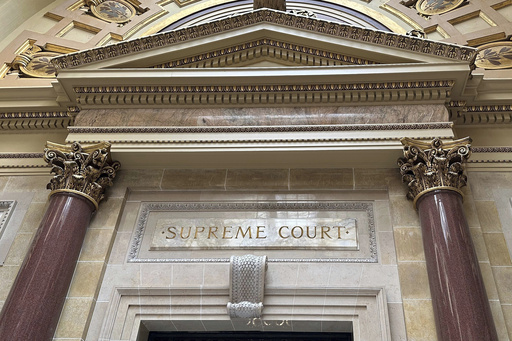The Wisconsin Supreme Court made a significant decision on Friday concerning an appeal from a conservative activist seeking access to guardianship records in order to identify potentially ineligible voters. The court ruled in a 5-2 vote, finding that a lower court had not followed the correct procedures when it determined that these records should be made public.
Importantly, the justices did not address the main issues of the case itself, which charged that there are discrepancies between the number of ineligible voters and the figures presented on Wisconsin’s voter registration list. Ron Heuer, a former travel executive and leader of the Wisconsin Voter Alliance, initiated the case. He urged the Supreme Court to require counties to release records generated when a judge rules someone incompetent to vote, to compare those with the existing voter registration details.
The Supreme Court emphasized procedural missteps made by the District II appeals court in Waukesha, which had previously overturned a decision from the Walworth County Circuit Court that denied access to the requested records. A similar case handled by the District IV appeals court in Madison had ruled that the guardianship records were not subject to disclosure under Wisconsin’s public records laws. Justice Janet Protasiewicz, who authored the majority opinion, pointed out that the District II appeals court should have consulted the Supreme Court directly regarding the other appeals court’s ruling.
If the lower court adheres to the correct procedures, the case may eventually return to the Supreme Court. For now, the justices sent the matter back to the appeals court for further consideration. Notably, the ruling included support from all four liberal justices along with conservative Justice Brian Hagedorn, who emphasized the necessity for consistency among different branches of the appeals court. Conversely, Chief Justice Annette Ziegler and Justice Rebecca Bradley, both conservatives, dissented, arguing that the court’s decision leaves critical issues unresolved for voters and election authorities.
Sam Hall, representing Walworth County, expressed approval of the ruling, highlighting the importance of election integrity while also respecting the dignity of individuals affected by guardianship orders. He reiterated that under a guardianship order, courts can strip individuals of their voting rights if they are found incapable of understanding the election process. The attorney for Heuer did not respond immediately to requests for comments regarding the case.
This legal battle is part of a broader effort by individuals questioning the 2020 presidential election results, aiming to bring into question the electoral process in this crucial swing state. Heuer and the Wisconsin Voter Alliance initiated lawsuits across 13 counties in 2022 in pursuit of crown guardianship records. However, earlier this year, the District II appeals court overturned a circuit court’s dismissal of the request, asserting that these records were indeed public, albeit with certain identifying information redacted.
Heuer has promoted various conspiracy theories surrounding the 2020 election results, including attempts to reverse President Joe Biden’s win in Wisconsin. In line with this, Heuer was hired as an investigator in a controversial election probe led by former Wisconsin Supreme Court Justice Michael Gableman, which ultimately found no evidence to support claims of fraud that could have influenced the outcome. The Wisconsin Voter Alliance has also pursued two unsuccessful lawsuits aimed at overturning the 2020 results.
In the 2024 election, Donald Trump managed to secure a victory in Wisconsin, winning by approximately 29,000 votes, after losing to Biden by nearly 21,000 votes in 2020. Notably, all inquiries regarding the 2024 election results are presently resolved, with no ongoing lawsuits or investigations into its outcome.
This story was first published on January 17. It received an update on January 21 to clarify that Ron Heuer is a former travel executive, not a former travel agent.


